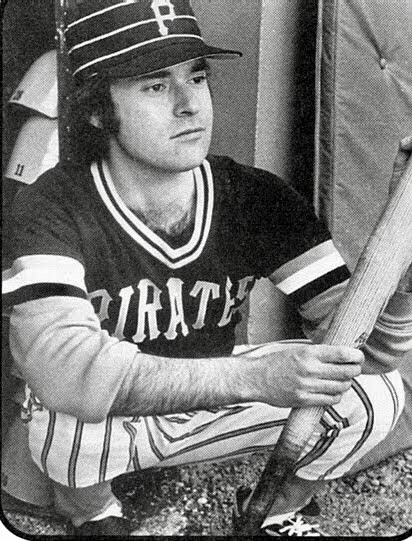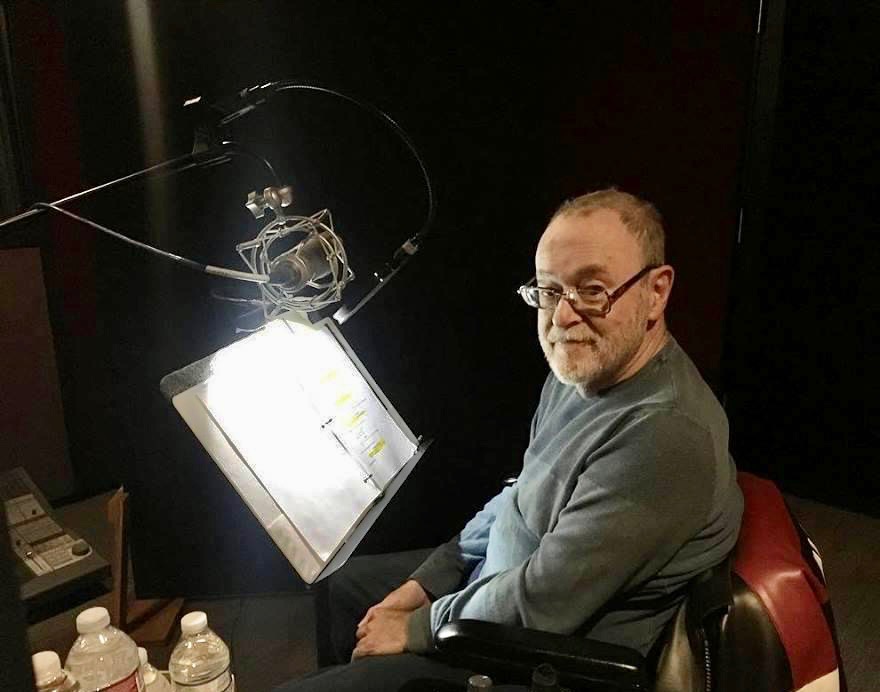
David L. Lander died on December 4, 2020. We knew it was coming: the MS had been working him over for more than three decades, but those of us who loved David were devastated anyway, despite the knowledge that his suffering was finally at an end. We’re still trying to reframe life without him. His wife of forty years, Kathy Fields Lander, has pointed out that one of the great lessons of his last years was how his humor overrode so much of the pain and physical decline. Kathy was pretty tough to begin with, but David showed her some new moves in the big fight.
My life with David is too long a story to share in one gulp, but I wanted to tell you what it was like to encounter this unique man for the first time, and a little of what happened next.
Beginning in September, 1965, I attended the Carnegie Institute of Technology in Pittsburgh. It is now known as Carnegie Mellon University, but I had little to do with its name-change or its academic blossoming. Actually, there’s a theme to my college years: both Carnegie and NYU’s School of the Arts began attracting Big Money—Carnegie had Mellon and NYU had Tisch—soon after I moved on. Coincidence? You tell me.

At any rate, I had auditioned for two theatre programs, and applied to a couple of other colleges, the latter being whatever you’d call the opposite of “safety schools”—the kind that actually looked at your grades, I suppose. But the auditions paid off and I was accepted to Carnegie and Emerson, in Boston. I picked Pittsburgh on a coin-toss, and my folks drove me to my new home: the McGill Hall dorm, Carnegie Tech.
I’d been hot stuff on the high school stage, but it soon became apparent that my freshman class was made up entirely of kids who could say the same thing. We were now sternly warned that only a third of us would complete the full four years. I did my part in this Grand Scheme by lasting a single year but, as anyone who matriculates even a little bit comes to understand, a college experience is more about the people you meet than it is about the classes you skip.
The mavens who ran the drama department at Carnegie Tech decided that freshmen actors should work nightly on stage crew: building sets, restoring tattered flats, patching cycloramas, and so forth. The first night, I was paired with another freshman for the purpose of painting some chairs. He was a short, chunky guy from the Bronx, with dark hair and glasses. A mild five o’clock shadow made him seem older than eighteen, but he had a little kid’s energy, rhythmically ahead of the beat. I liked him right away, and when I told him my father had been the “as-told-to” co-writer of Rudy Vallee’s autobiography, My Time is Your Time, he was very interested. He had seen Rudy in Broadway’s How to Succeed in Business Without Really Trying several times and Mr. Vallee’s co-star, Robert Morse, was this guy’s Broadway hero.
So we painted the shit out of those chairs, letting the chatter propel us through the busy-work—unintentional efficiency is the best kind. The real yield of the exercise turned out to be a friendship lasting more than half a century, but the chairs did look amazing. (It wasn’t until May of ’66 that I figured out how to get out of working crew: I removed the end of my right thumb with a table saw—an accident, and not an experience I’d recommend, but I never used a ratchet nor painted a flat again.)
Anyway, the guy’s name was David Landau, born in Brooklyn, raised in the Bronx. His reasons for coming to Carnegie were many, but he admitted that it was the college’s proximity to Forbes Field, home of the Pittsburgh Pirates, that sealed the deal. His passion for the team cannot be discussed rationally, so we’ll leave it for now.

Now, young actors can be a serious bunch, preloaded with teenage angst and hero-worship—for 1965, think Brando and Dean—ready to spill their guts in search of dramatic truth. We sought the teachers and scene-mates who would help us turn ourselves inside-out. Blood and hair all over the walls. This mindset served as a weighty counterpoint to the jaunty campus nickname for followers of our discipline: “dramats”, accent on the second syllable.
David lived at Boss Hall, across the way from McGill. The third-floor unit he shared with two other theater majors became a meetin’ hall for us dramats who liked our angst spiked with a bit of playtime. The level of improvisation was pretty high—heh, heh—and everybody pulled his weight, either as fictional characters or as versions of their own richly cultivated selves—divine and ridiculous, as young selves tend to be.
The evenings eventually assumed the shape of a make-believe talk show, hosted by a guy called D.L., a legendary Brooklynite/Catskillian comedian who talked a mouthful a minute. He was the classic midlevel star comic who wears his heart on his French cuff, the hi-test joke-machine who periodically interrupts the stream of shtick to wax maudlin (Mom, God, sponsors), before turning on a dime back to the jokes. I played the side-kick role, and the rotating cast featured some pretty strong “guests” (names bandied on request) but it was Dave Lander, the D.L., with his patented charm à la smarm, who ran the room. We were all funny and resourceful and full of beans, but no one occupied the groove as cozily as the D.L.
That Boss Hall dorm room became known—with a salaam to Ozzie & Harriet’s America—as The Malt Shop. Not everything was shtick-driven: no doubt philosophies were expounded and discredited in these gatherings; certainly, life plans were made, the successive fulfillment of which has varied widely with the individual. We learned about each other as humans, as men (no coeds in the old dorms!), as acting partners. And we laughed a lot.
A million things happened during those months, adventure yarns for a different campfire. The Malt Shop boys went their separate ways. Some stayed at Carnegie for the full four, some didn’t. David auditioned for the upstart NYU School of the Arts and got in. I took a year off to sidestep anything that was expected of me—played some music, lived some life, and burned a lot of midnight oil with D.L. and friends. I was back living at my parents’ house in Sea Cliff, Long Island, but David’s East Village apartment was my first stop when I’d come into town. It was no Malt Shop East: you needed the Carnegie odd fellows to make even the most imaginary talk show come to life. It was often just David and me, watching the late nineteen-sixties in real time, seeking the funny in that peculiar era.
I wound up at NYU myself the following year, though David had by this time lit out for the territories, specifically Los Angeles. He called me in 1969 to inform me that he’d changed his last name (there was already a David Landau in SAG) and gotten married. The D.L. who emceed the Malt Shop soirées would refer to his “lovely wife, Peg” now had a real wife named Thea. The couple came east for a quick hello (incidentally introducing me to one of David’s new friends, Rob Reiner) and an invitation to join the party out west: D.L. was now part of a satirical radio news outfit called the Credibility Gap, and he thought I’d fit right in.
Elsewhere on this site, you’ll find the story of my gradual infiltration of that august body (The Reality Building: Some Words on The Credibility Gap), and I’ll cover the TV years another time, but I wanted to share something of those early years: how a bit of obligatory chair-painting led to a friendship that lasted fifty-five years. You don’t get many of those.

David L. Lander 1947-2020
When I heard/read about David’s passing it hurt/broke my heart. I’ve been watching my DVD of Laverne & Shirley religiously ever since. I’ve read his autobiography too. He’s legacy lives on forever!
LikeLike
more!
LikeLike
Wonderful read. Thanks.
LikeLike
An awesome tribute to a dear friend – and a great read. Can’t wait for the TV years. Thanks for sharing Michael…
LikeLike
So much for the banal reply of “you have no idea how lucky you are”. You have every idea. Nice.
LikeLike
Thanks for sharing this beautiful tribute to your friend. The two of you are inextricably linked in our collective pop culture memories. As a parent, I was so happy to have rediscovered his voice in the form of a hot chocolate loving penguin.
LikeLike
That is a beautiful piece of writing.thank you.
LikeLike
So perfect Mikey. David would be pleased. Thank you for being his friend …and mine, Love you Kath
LikeLike
A beautiful tribute. Thank you for sharing him with us.
LikeLike
So sorry for your loss but so happy for you to have had the long friendship that you did.
LikeLike
So lovely. I grew up on Laverne & Shirley and didn’t realize your friendship went back that far. So very sorry for your loss, but what a blessing to have had such a friendship.
LikeLike
You’ve a wonderful way with language, I’ll be back to read more.
LikeLike
Great. No real words to describe the exquisiteness of friendships like the one you have with David. I am lucky to have some like that too. Thanks for sharing.
LikeLike